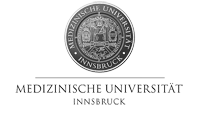|
|
 |
1 Pediatrics, Medical University, Innsbruck, Austria; 2 Hopital Herriot, Lyon, France; 3 Pediatrics, University Heidelberg, Germany, 4 Pediatrics, University Zuerich, Switzerland; 5 Pediatrics, University, Prague, Czech Republic; 6 Duke University Medical Center, Durham, NC, USA
Renal transplantation (RTx) in steroid resistant FSGS is complicated by high risk of disease recurrence (DR). DR seems to be influenced by genetic background. TRPC6 is speculated to disrupt the glomerular homeostasis by altering the intracellular calcium level and the threshold for apoptosis. NPHS2 is also part of the podocyte-basal membrane system. In this international survey a genotype-phenotype correlation is studied.
83 patients (P) with childhood onset of biopsy proven FSGS who had been transplanted at least once were evaluated by standardized questionnaire. 75/83P were Caucasians, 6 Arabs and 2 Asians. Mutations of NPHS2 (n=53P) and TRPC6 (n=7P) were studied by genetic screening.
Mean age at diagnosis was 6.8 + 0.7 years (y). The first RTx was performed at age 12.8 + 0.8 y. 20 P received a living related (LRD), 63 P a deceased donor graft (DD). 30 P (36%) recurred after a mean time of 152 + 55 days. 29P lost their graft, 41% lost it due to recurrence. A second RTx was performed in 22 P with LRD in 5 P. 50% recurred after a mean time of 96 + 53 days. 11/22 lost their graft, in 72% due to recurrence. Screening for NPHS2 mutations reveiled 11 P with mutation, the 7 P who were tested for TRPC6 mutations were all negative. P with a homozygous or compound heterozygous NPHS2 mutation showed no recurrence after RTx compared to 43% of P without mutation (p<0.05, NPHS2 results of 30 P are pending). In the retrospective analysis only treatment with cyclosporine A and/or plasmapheresis in case of recurrence had a tendency to be favorable (n.s.).
Renal transplantation of patients with NPHS2 mutations had a lower risk of recurrence. Genetic testing for underlying mutations is mandatory to improve long term outcome. A prospective study for optimization of treatment in recurring disease is urgently needed.
Supported by ESPN, APN and the Universities Innsbruck and Heidelberg http://ecofts.uklibk.ac.at
